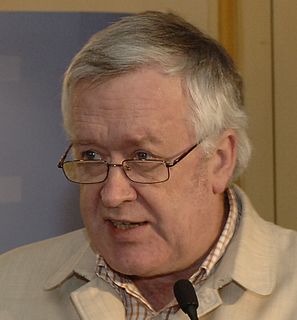A Quote by Elon Musk
You could warm Mars up, over time, with greenhouse gases.
Quote Topics
Related Quotes
I know we need more nuclear power in order - nuclear power, after all, is not dependent on fossil fuels and emits no greenhouse gases. I believe we're going to be able to have coal-fired plants that have zero emissions. We need to work on carbon sequestration technologies. I mean, there's a lot we can do together and achieve the objective, which a lot of people want, which is the reduction of greenhouse gases, and at the same time, have viable economic growth.
Are global temperatures rising? Surely, they were rising from the late 1970s to 1998, but 'there has been no net global warming since 1998.' Indeed, the more recent numbers show that there is now evidence of significant cooling [...] Mankind is responsible for just a fraction of one percent of the effect from greenhouse gases, and greenhouse gases are not responsible for most of what causes warming (e.g., the Sun).
We need to remind ourselves that our ultimate goal is not to reduce greenhouse gases or global warming per se but to improve the quality of life and the environment. We all want to leave the planet in decent shape for our kids. Radically reducing greenhouse gas emissions is not necessarily the best way to achieve that.
Extreme weather like the droughts in Russia, China and Brazil and the flooding in Pakistan and Australia [in 2010] have contributed to a level of food price volatility we haven't seen since the oil crisisof 40 years ago. Unfortunately, this could be just a taste of things to come because in the next few decades the build-up of greenhouse gases already in the atmosphere could greatly increase the risk of droughts, flooding, pest infestation and water scarcity for agriculture systems already under tremendous stress.


































